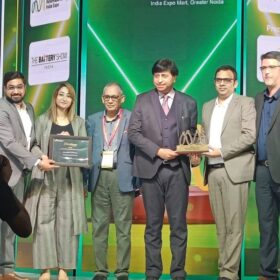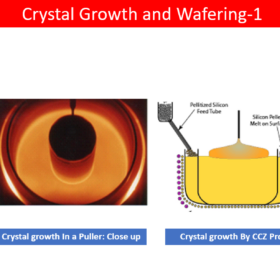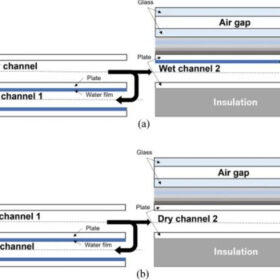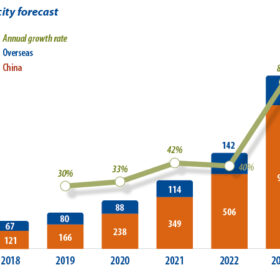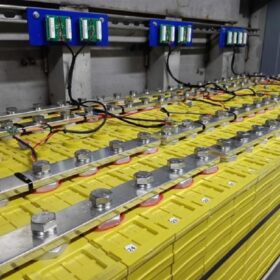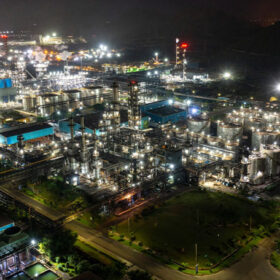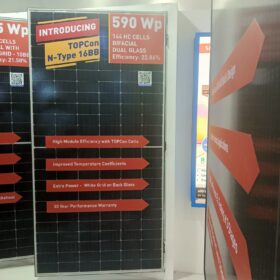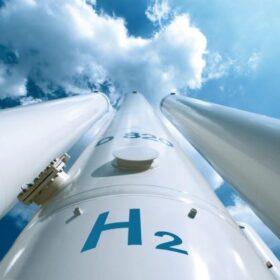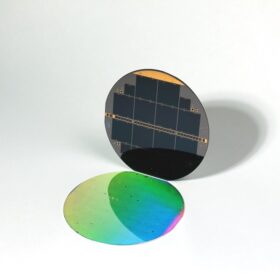Airtouch Solar India wins REI 2023 award for product innovation
Airtouch Solar manufactures and sells its autonomous, water-free PV panel cleaning products and services in Israel and India. The company has won significant orders for its recently launched Airtouch AT 4.0 solution with leading Indian developers including Adani Green Energy and ReNew.
RSOLEC announces plans for 5 GW solar wafer fab with an expansion roadmap to 20 GW in India
Renaissance Solar and Electronic Materials (RSOLEC) has announced its plans for solar crystal growth and wafer production in India. The company will initially set up a 5 GW per annum facility and plans expansion to exceed 20 GW capacity in the long term.
Reducing solar module temperature via dew-point evaporative cooling
Japanese scientists have designed a cooling system that reduces the solar panel operating temperature at the air inlet of the module. It consists of a dew-point evaporative cooler that supplies the near-saturation air to wet air channels that are attached to the back of a PV panel.
A survival guide for solar SMEs
As solar manufacturing moves toward technological convergence, and rampant production capacity expansion continues, standing out from the crowd is just one of the strategies small- and medium-sized enterprises (SMEs) will have to use to survive, according to InfoLink’s Amy Fang.
Lithium-ion batteries differ in terms of risk
As the energy storage trend unfolds, stories litter the media landscape about lithium-ion batteries catching fire, and even exploding. This is a valid concern, as the time for consumers to understand a basic truth about lithium-ion batteries is long past due.
Epsilon Group acquires LFP cathode technology centre in Germany
The purchase follows Epsilon’s recent $1.1 billion investment in the establishment of a 100,000-ton cathode battery materials manufacturing facility in Karnataka, India.
REI 2023: Jakson unveils bifacial solar panels based on TOPCon technology
Indian manufacturer Jakson has exhibited its 590 Wp TOPCon bifacial solar panels with a power conversion efficiency of 22.86% at Renewable Energy India Expo 2023.
The Hydrogen Stream: Germany expands global hydrogen alliances
Germany advanced its hydrogen ambitions this week with a fresh call for the International Green Hydrogen Promotion Program in Latin America, a collaborative deal with the UK government, and a tie-up between DHL and Sasol for sustainable aviation fuels based on green hydrogen (eSAF).
Fraunhofer ISE, AMOLF claim record efficiency of 36.1% for silicon-based multijunction solar cell
The two research institutes said the multijunction solar cell is based on silicon, gallium indium phosphide (GaInP) and gallium arsenide (GaAs). The device utilizes a specially designed metal/polymer nanocoating that reportedly optimizes the distribution of light scattering beyond the total internal reflection critical angle in the cell.
Exide Energy to produce NCM, LFP lithium battery cells initially
Exide Energy is setting up 6 GWh of lithium battery capacity initially, including 3 GWh for lithium nickel cobalt manganese oxide (NCM) and lithium iron phosphate (LFP) cells each. It plans to scale it to 12 GWh in the near future.
